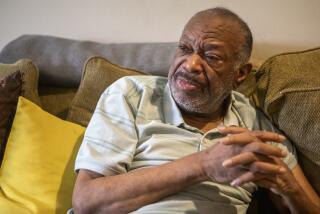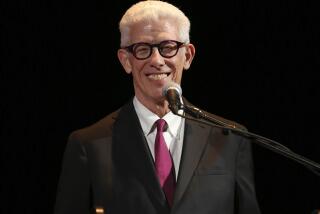Gustave Shubert dies at 79; Rand Corp. vice president
Gustave H. Shubert, who expanded the Rand Corp.’s research mission from military studies to analyses of education policy, crime-fighting and other domestic issues, died Nov. 25 of natural causes at a Los Angeles nursing home. He was 79.
Shubert was associated with Rand for more than 40 years, beginning in 1959 when he joined the Santa Monica-based think tank to conduct research on national security matters, including American policy in Southeast Asia.
He later led efforts to focus Rand’s resources on studying pressing social problems, such as the preparation and supply of teachers. He was head of its domestic research division when he was tapped in 1979 to launch the Rand Institute for Civil Justice, which produced a number of provocative studies on such topics as the costs of asbestos litigation and strategies for limiting medical malpractice claims.
“It is due to Gus’ leadership that Rand analyzes issues as diverse as K-12 education, climate change, civil justice and healthcare policy while continuing to take on major national security questions,” said Rand President and Chief Executive James A. Thomson, who called Shubert a “towering figure” in Rand’s history.
An Air Force pilot during the Korean War, Shubert joined Rand early in its development as the research arm of the U.S. Air Force. He contributed to studies on strategic air power, counterinsurgency operations and NATO force planning.
He left Rand briefly to lead the U.S.-NATO Defense Planning Teams in Paris from 1964 to 1966. After his return, he became a Rand vice president in 1968 and began to lead efforts to focus more of the think tank’s resources on analyses of social and economic policy. One of the major projects he was involved in was the New York City Rand Institute, which operated from 1968 to 1974 and conducted research for then-Mayor John V. Lindsay on housing, police and fire services, health, welfare and water pollution. In California, Rand began to launch studies into government finance and organization, public schools and air pollution.
He was known for his ability to analyze a complex problem and shape the research so that it answered the right question. He said bureaucrats often asked the wrong questions in trying to devise appropriate public policy. In the New York City project, for example, Rand researchers were asked to determine whether adding more detectives would help the Police Department solve more crimes.
“What we found,” Shubert told The Times some years ago, “was that the detective budget was actually irrelevant” and that the more crucial factors were whether an officer found evidence at the crime scene, whether a victim could identify the offender and whether the offender admitted to previous crimes.
Shubert was born on Jan. 18, 1929, in Buffalo, N.Y. He earned a bachelor’s degree in English and political science from Yale University in 1948 and a master’s from New York University in 1955.
He is survived by his wife of 56 years, Rhea Brickman, of Pacific Palisades; a daughter, Wendy Jackson, also of Pacific Palisades; a son, David, of Rockingham, N.C.; and two granddaughters.
Memorial services are pending.
Woo is a Times staff writer.
More to Read
Start your day right
Sign up for Essential California for the L.A. Times biggest news, features and recommendations in your inbox six days a week.
You may occasionally receive promotional content from the Los Angeles Times.







